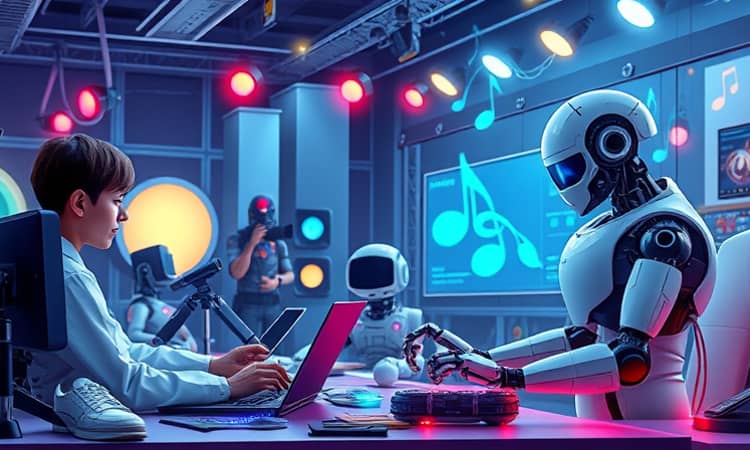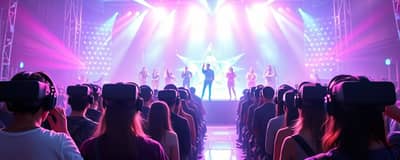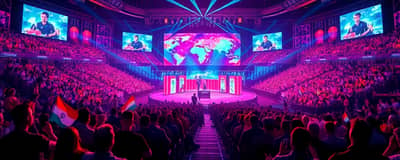The world of entertainment is undergoing a profound transformation. As artificial intelligence integrates into every stage of production, creators and audiences alike witness both unprecedented opportunities and complex challenges. From scriptwriting to post-production, from personalized recommendations to hyper-realistic virtual actors, AI is reshaping the creative landscape.
In this article, we explore how AI drives innovation, boosts efficiency, and invites us to reflect on the ethical responsibilities that come with these powerful new tools.
Revolutionizing Production
AI-driven tools now support every aspect of pre-production through post-production. Scriptwriters can use language models to generate dialogue options, propose plot arcs, and suggest character motivations within seconds. Animators and editors rely on machine learning algorithms to automate rotoscoping, color grading, and sound design.
By accelerating creative workflows with AI, studios free up time for deeper artistic exploration. Meanwhile, studios can craft hyper-realistic CGI characters and avatars that interact seamlessly with live actors, blurring the line between reality and imagination.
Practical tip: pilot small AI projects—such as automated scene scouting or AI-assisted storyboard generation—to measure cost savings and creative impact before scaling up.
Personalization and Audience Engagement
Recommendation engines powered by machine learning analyze millions of viewing patterns to deliver content that resonates with individual tastes. Whether on streaming platforms or music services, predictive analytics and sentiment analysis help creators understand audience reactions in real time.
By harnessing data, content distributors tailor viewing experiences and release schedules to match global demand. They can identify emerging trends, adjust marketing strategies, and boost retention metrics within days rather than months.
- Implement AI-driven recommendation engines to boost discovery
- Leverage sentiment analysis tools for real-time feedback
- Run A/B testing with predictive models for optimized releases
These steps ensure that every piece of content finds its most receptive audience, creating tailored experiences that resonate with viewers.
Expanding Creative Frontiers
Beyond automation and personalization, AI is unlocking entirely new forms of expression. In music, platforms like AIVA compose original scores in diverse genres. In gaming, adaptive NPCs powered by reinforcement learning respond uniquely to each player’s choices.
Filmmakers are experimenting with virtual actors and deepfake technology to resurrect historical figures or create characters that evolve over episodic arcs. This reshaping creative workflows across multiple sectors pushes the boundaries of what storytelling can achieve.
To explore these possibilities, creators can experiment with open-source libraries like Unity ML-Agents for interactive worlds or trial AI composition tools for scoring independent films.
Efficiency and Cost Benefits
Traditional production processes often involve repetitive tasks that can drain budgets and extend timelines. AI-powered systems automate these workflows, from editing raw footage to generating marketing copy for promotional campaigns.
By streamlined editing and automated production tasks, companies can cut turnaround times by up to 50% and reallocate resources toward higher-value creative work.
Practical strategies for implementation:
- Automate repetitive VFX and color correction processes
- Use AI for proofreading, translation, and localization
- Integrate AI-driven scheduling and budgeting algorithms
These initiatives not only reduce costs but also empower small studios and independent creators to compete on a larger stage.
Ethical Considerations and Future Directions
Despite its benefits, AI in entertainment raises pressing ethical questions. Who owns the rights to an AI-generated screenplay? How do we prevent deepfakes from infringing on personal privacy or spreading misinformation? How do we ensure fair compensation for human artists?
Industry stakeholders are calling for clear regulations and transparent guidelines. The Writers Guild of America’s recent strike highlighted the need for policies that define content ownership and credit attribution when AI assists in the creative process.
- Define clear ownership models for AI-generated assets
- Invest in upskilling creative teams to work alongside AI
- Monitor algorithmic bias to ensure fair representation
By addressing the challenges of intellectual property and embracing innovation while safeguarding human creativity, the industry can navigate these complexities responsibly and inclusively.
Conclusion
The rise of AI in entertainment represents both a revolution and an evolution. It offers creators powerful tools to imagine worlds beyond our wildest dreams and to connect with audiences more meaningfully than ever before.
As we move forward, the most successful ventures will be those that view AI as a collaborator rather than a replacement. By adopting strategies for collaborative human-AI partnerships and bridging technology with authentic human expression, storytellers can harness the best of both worlds.
Now is the moment to embrace this synergy, transforming storytelling through data-driven insights, hyper-personalization, and creativity unbound by old limitations. Together, we can shape an entertainment landscape that is efficient, innovative, and deeply human.
References
- https://www.leewayhertz.com/ai-in-media-and-entertainment/
- https://digitalcontentnext.org/blog/2025/01/28/how-ai-is-reshaping-the-entertainment-industry/
- https://www.brandvm.com/post/how-ai-is-changing-content-creation-in-entertainment
- https://www.numberanalytics.com/blog/cutting-edge-ai-driven-content-creation-entertainment-media
- https://www.stack-ai.com/articles/how-is-ai-enhancing-entertainment-and-content-creation
- https://www.grandviewresearch.com/industry-analysis/artificial-intelligence-ai-media-entertainment-market-report
- https://sloanreview.mit.edu/article/the-impact-of-generative-ai-on-hollywood-and-entertainment/
- https://vlinkinfo.com/blog/ai-in-media-and-entertainment-industry/














